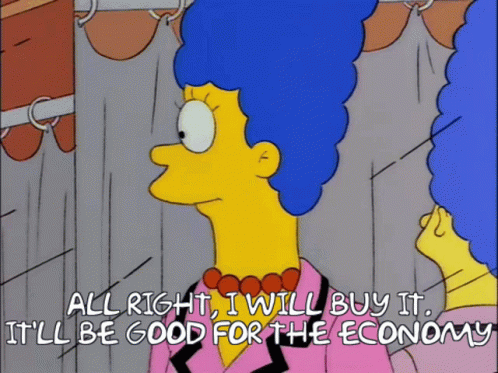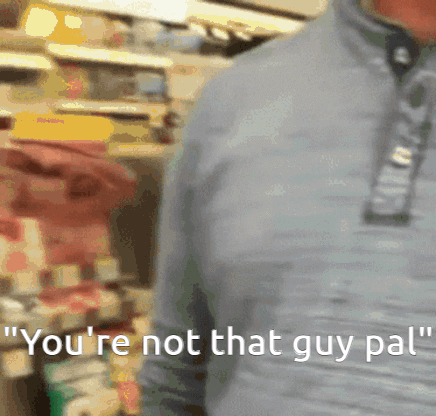Would you consider yourself a rational person? I always did anyways, thinking that I made choices not because I wanted to, but rather deciding on the best choice available to me in any given situation. Best referring to the choice that would give me the outcome that benefits me the most. But over time what I’ve come to realize that this is completely false, the truth is that I, like so many around me, make my choices on a whim. People by in large are not rational, but rather rationalizers. Meaning that rather acting out of a clear and reasoned analysis of a situation, people will act out of their desires and impulses. It’s only after they have done so that they begin to construct a “logical” explanation or narrative to justify their actions.
We love to believe that we’re these brilliant creatures of pure logic and reasoning. We idolize the Sherlocks of the world, the cool, calculating geniuses who carefully weigh out every possible decision and make the perfect choice in any given situation that miraculously saves the day and solves everyone’s problems. But if we’re being honest for a second, how often do you actually make decisions this way? Your brain has more in common with a sleazy salesperson than Sherlock Holmes. And what your brain sells you is the illusion that you’re in control, that there’s a perfectly logical reason for the silly, selfish and outright stupid things you do.
Want first, justify later.
Ever caught yourself reaching for that extra slice of cake, knowing full well your diet is going about as well as the Titanic’s maiden voyage? Or how about that time you bought that thing you didn’t need with the money you didn’t have? Why would you do that? You know the rent is due next week. I’ll tell you why, you did it because you wanted to, simple as that. It was stupid and irresponsible, and you knew that as you were doing it. But when your friend questioned you about it later you had your story ready to go about how the thing you bought ”was on sale” or how you’re “supporting the economy” or some other bullshit that you both know isn’t true.

We’re wired to go after what we want (Now more so than ever before, thank you internet for frying my dopamine receptors), and only after we’ve gotten what we want do we slap on a coat of rationality to cover up the truth. Now, I’m not saying we’re just brain dead animals not capable of any rational thought, it’s just that we don’t use it when we think we do.
The whole reason for this “post impulse clarity” is to help maintain a consistent self-image. Your brain is the clean-up crew for your rash decision making. No one wants to think themselves as “impulsive” because it is universally looked at as a negative characteristic, so naturally the only way around that is to convince yourself that your behavior was completely deliberate and sensible. The scariest thing about this is just how damn good the brain is at convincing you that the excuse you’re telling is actually the truth, as if you are the audience and not the author.
The webs we weave
So then why does your brain feel the need to keep this self-image in check, so much so that it’s willing to lie to you on your own behalf? We’re trying to look good for the toughest critic we know; ourselves. This constant need for rationalization of ones own contradictory actions is a deeply rooted coping mechanism. It allows people to navigate the cognitive dissonance that arises when their actions don’t align with their self-perceived identity or even social expectations. By creating justifications after the fact, your brain can reconcile your behavior with the beliefs you hold about yourself and the world around you. This is the basic idea behind Carl Rogers’ theory of incongruence.
Simply put, incongruence is what happens when a persons self-concept clashes with their actual experiences. Imagine someone who fancies themselves a bit of a Casanova, a ladies man, a regular Steve Stiffler. Now imagine that same person goes out and hits on a hundred women with bad corny pickup lines and gets rejected by all of them. Do you think that person is going to say “maybe I’m not a smooth ladies man like I thought”? Of course not, he’s going to tell himself that they all must have been busy, or they didn’t hear him properly or that they just don’t have good taste in men. That person will tell himself every excuse imaginable to avoid the uncomfortable reality, that he’s just not the person he thought he was.

Incongruence can lead to anxiety because there is a threat to the individuals self-concept. To protect themselves, people use defense mechanisms like denial and distortion, altering their perception of reality to make it consistent with their self-concept. Or put simply, you keep lying to yourself. Because to accept reality would be to shatter ones own sense of identity, which can very quickly spiral into an identity crisis.
It’s not that deep bro
Ultimately what I’ve realized is that the best way around this is to acknowledge that not everything needs a justification. Take your actions at face value and don’t allow your brain to give reason to a situation where there isn’t one. You didn’t eat the whole cake because it was about to expire, you did it because cake is delicious and just one slice wasn’t enough. When you repeatedly allow your brain to excuse your impulsive behavior and accept the narrative it concocts for you without hesitation, you enforce a negative feedback loop. You’re essentially telling yourself it’s ok to repeatedly fuck up, because no matter what happens, your brain will cover for you with an excuse that will let you live with your choices without ever needing to take accountability for your actions.
When you take ownership of your choices, specifically the “bad” ones, you allow yourself a chance to change future behavior. You become more self-aware and gain the ability to say “hey, I did this thing and I didn’t like it and it was actually really shitty that I did it, let’s not do that again.” This is the power of mindfulness, and it’s ability in helping break the cycle of rationalization can’t be overstated.
By being present and mindful, you can catch yourself in the act of making a decision based on impulse rather than reason. This awareness creates a moment of pause, a critical point in which you can choose a different path. It’s in this space that change begins, not in the aftermath of decisions made, but in the moment of choice itself. In a culture obsessed with the narrative of constant success and perfection, admitting to and owning your mistakes may seem like a wild concept to some. There’s a sense of relief that comes with accepting that you’re allowed to, even expected to make mistakes, as long as you learn from the ones you make.
Conclusion
So, what’s the takeaway here? It’s not to throw reason and logic out the window. Those tools are important; after all they’ve gotten us to the moon and back. It’s to recognize that reason and logic are not at the wheel as much as we thought. They’re more like the GPS — offering suggestions, ones that are often ignored, but helpful at times when we find ourselves lost. So, the next time you find yourself crafting a narrative to justify an impulsive decision, pause. Ask yourself, “Is this truly the person I want to be?” If not, it’s never too late to change the narrative. It’s never too late to be honest with yourself and others. In doing so, you might just find that the freedom to be imperfect is the most liberating choice of all.

